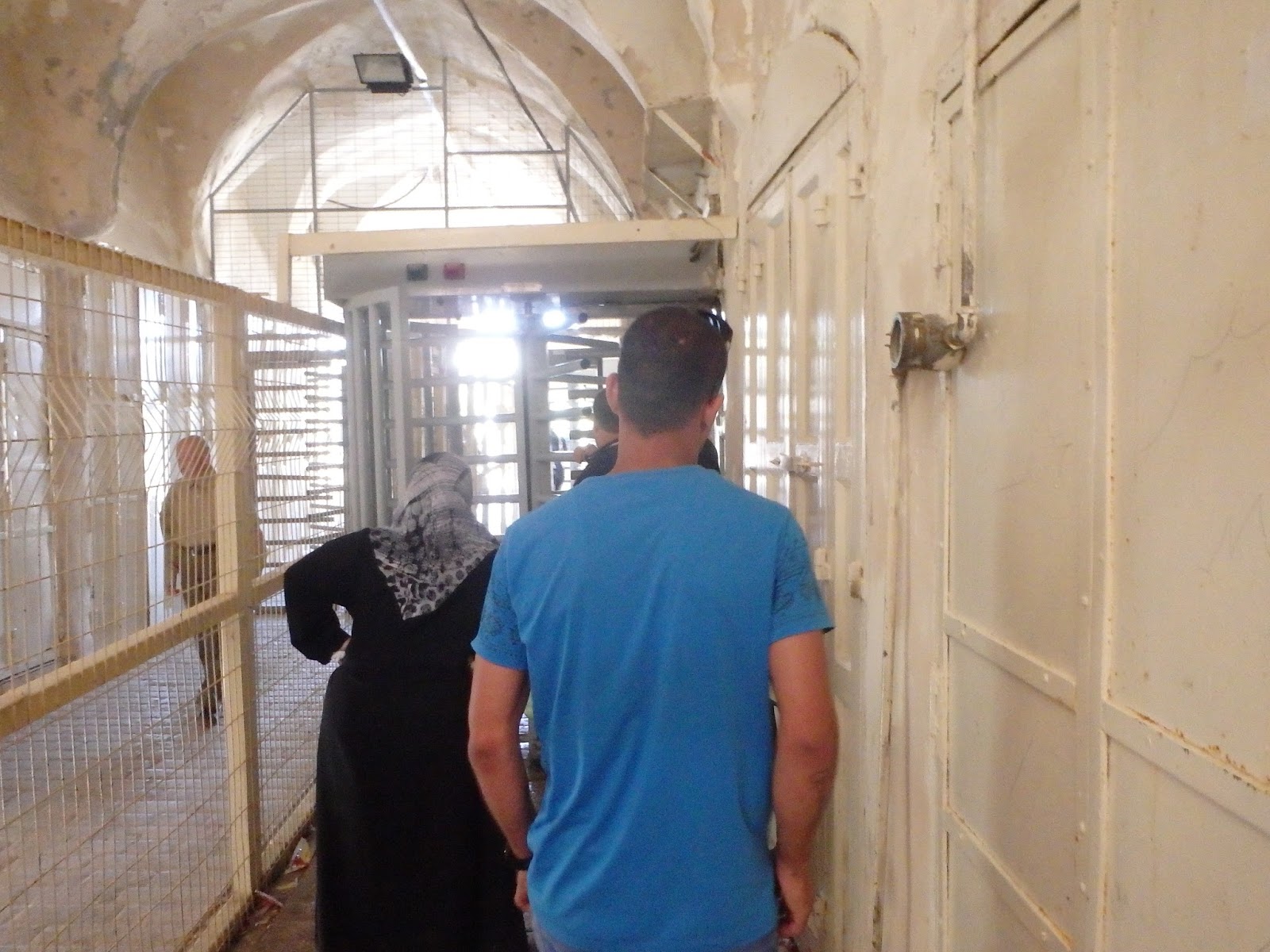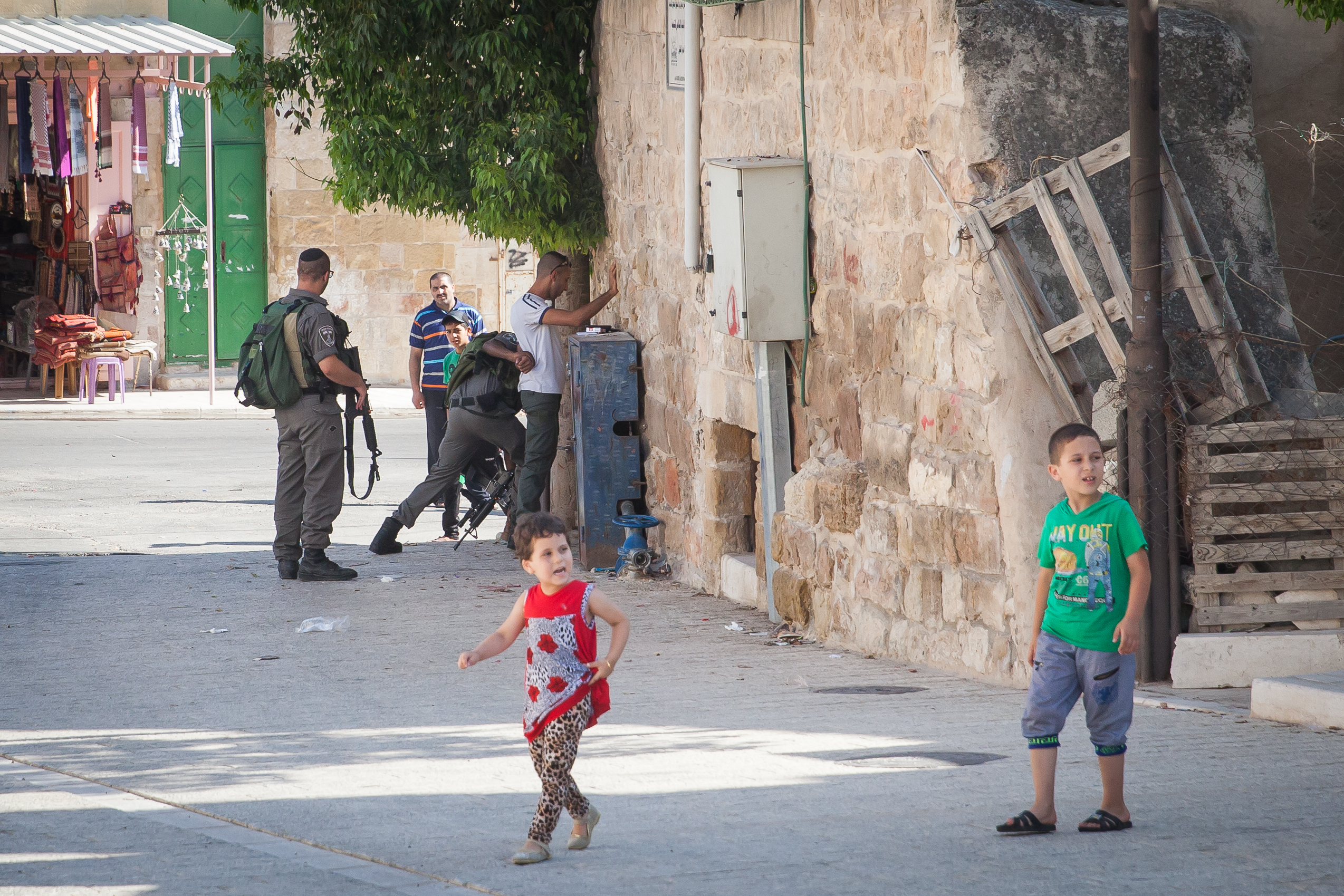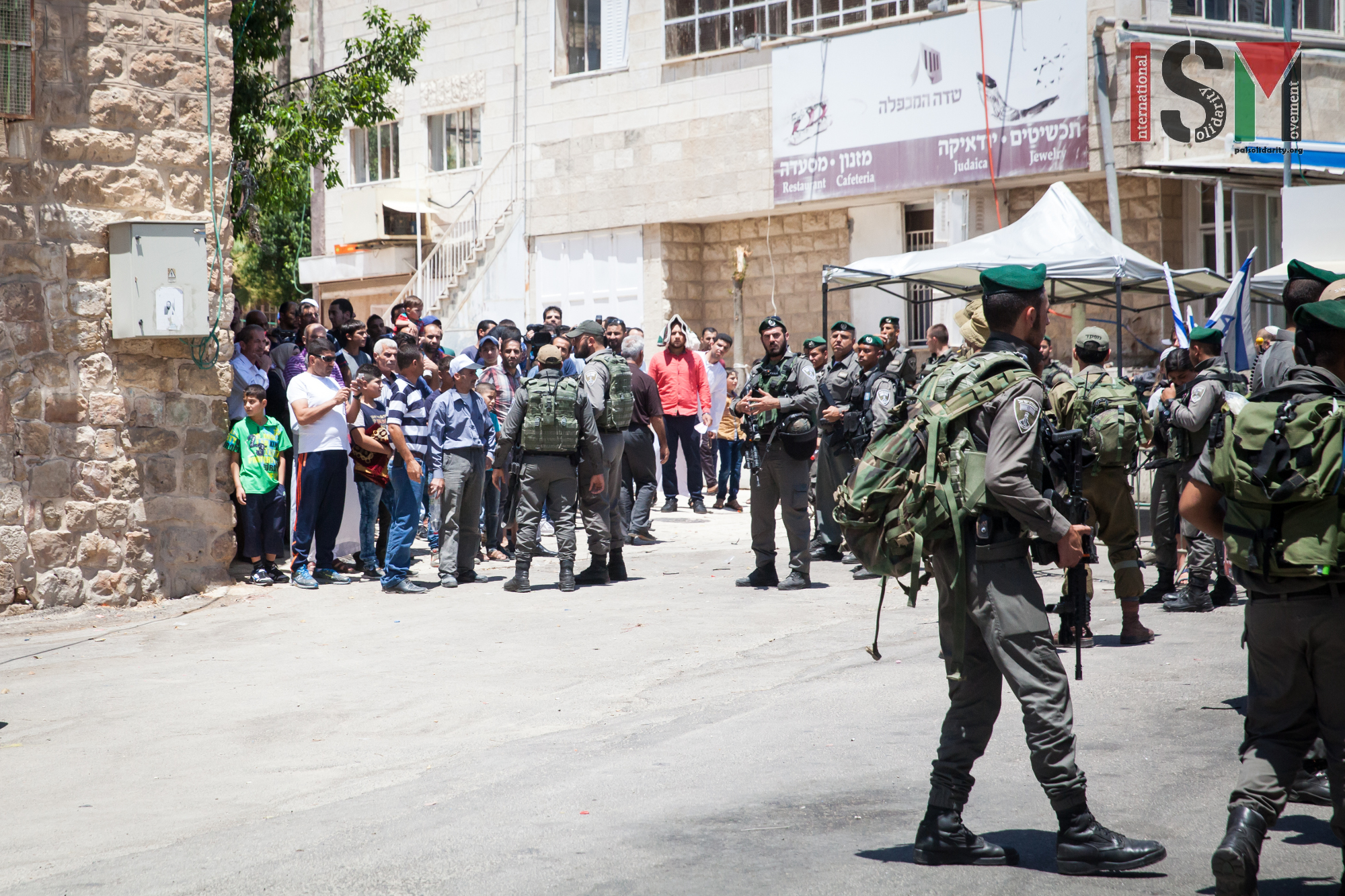Tag: Ibrahimi Mosque
-
Denied permission to go to the mosque to pray
13th July 2016 | International Solidarity Movement, al-Khalil team | al-Khalil, occupied Palestine During one of our walks today, we came across a sight that very unfortunately is all too common in this city. A group of men and women were queuing up to go to the Ibrahimi Mosque – believed by both Jews and…
-
Apartheid and racist restrictions around Ibrahimi mosque
5th July 2016 | International Solidarity Movement, al-Khalil team | Hebron, occupied Palestine During the last days of the Muslim holy month of Ramadan, Israeli froces have implemented further restrictions in the area of the Ibrahimi Mosque in occupied al-Khalil (Hebron.) These restrictions deliberately and exclusively target Palestinians in attempts to further cleanse this area…
-
Worshippers for Ramadan prayer harassed by settlers and soldiers
1 July 2016 | International Solidarity Movement, al-Khalil team | Hebron, occupied Palestine On 1st July 2016, Israeli forces severly restricted access to Ibrahimi mosque in occupied al-Khalil (Hebron) for noon-prayer, while settlers were demonstrating at a checkpoint nearby the mosque. After pregnant 27-year old Sarah Tarayra was gunned down by Israeli forces at Ibrahimi…



